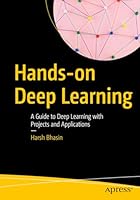
Optimal Learning
- Length: 404 pages
- Edition: 1
- Language: English
- Publisher: Wiley
- Publication Date: 2012-04-17
- ISBN-10: 0470596694
- ISBN-13: 9780470596692
- Sales Rank: #1014287 (See Top 100 Books)
Optimal Learning (Wiley Series in Probability and Statistics)
Learn the science of collecting information to make effective decisions
Everyday decisions are made without the benefit of accurate information. Optimal Learning develops the needed principles for gathering information to make decisions, especially when collecting information is time-consuming and expensive. Designed for readers with an elementary background in probability and statistics, the book presents effective and practical policies illustrated in a wide range of applications, from energy, homeland security, and transportation to engineering, health, and business.
This book covers the fundamental dimensions of a learning problem and presents a simple method for testing and comparing policies for learning. Special attention is given to the knowledge gradient policy and its use with a wide range of belief models, including lookup table and parametric and for online and offline problems. Three sections develop ideas with increasing levels of sophistication:
- Fundamentals explores fundamental topics, including adaptive learning, ranking and selection, the knowledge gradient, and bandit problems
- Extensions and Applications features coverage of linear belief models, subset selection models, scalar function optimization, optimal bidding, and stopping problems
- Advanced Topics explores complex methods including simulation optimization, active learning in mathematical programming, and optimal continuous measurements
Each chapter identifies a specific learning problem, presents the related, practical algorithms for implementation, and concludes with numerous exercises. A related website features additional applications and downloadable software, including MATLAB and the Optimal Learning Calculator, a spreadsheet-based package that provides an introduction to learning and a variety of policies for learning.
Table of Contents
1 The challenges of learning 1
2 Adaptive learning 31
3 The economics of information 61
4 Ranking and selection 71
5 The knowledge gradient 89
6 Bandit problems 139
7 Elements of a learning problem 163
8 Linear belief models 181
9 Subset selection problems 203
10 Optimizing a scalar function 219
11 Optimal bidding 231
12 Stopping problems 255
13 Active learning in statistics 269
14 Simulation optimization 285
15 Learning in mathematical programming 301
16 Optimizing over continuous measurements 325
17 Learning with a physical state 345







